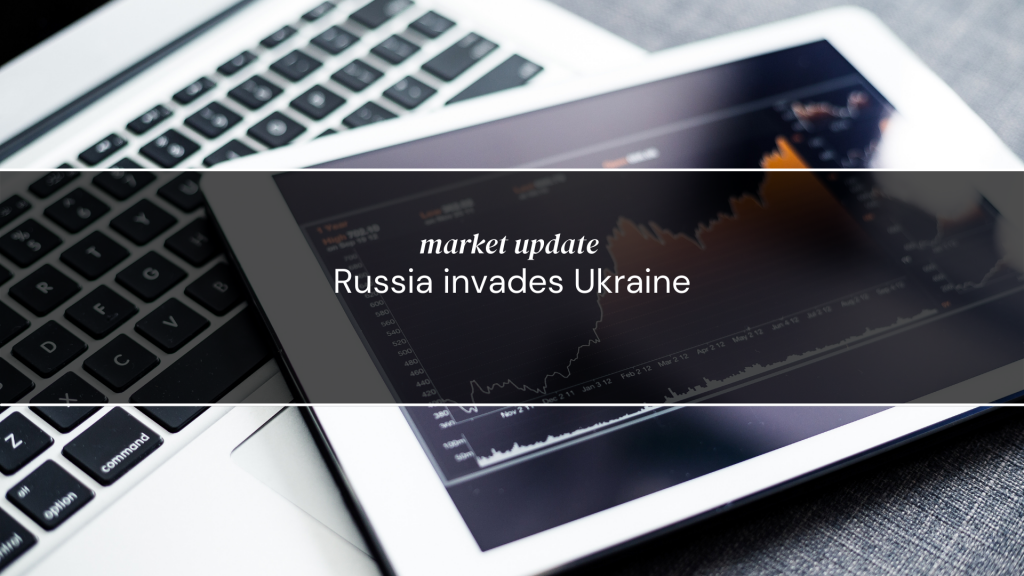Market Update: Russia invades Ukraine Posted on February 24, 2022

Article by AllianceBernstein
What has happened?
After months of mounting tensions, Russia attacked Ukraine on Thursday, February 24, with widespread fighting throughout the country. The conflict is a serious escalation in a region that’s been a hotspot for tensions between Russia and the West for years, adding uncertainty to the global economic outlook. Many financial markets tumbled as news of the invasion unfolded. European equity markets fell by 3%-4% Thursday, Russian stocks – at one point down by 45% – ended the day down 33%. US markets were down for most of Thursday but ended in positive ground, led by tech stocks. Oil prices surged, with Brent crude ending above $90 per barrel. Some European energy and materials stocks were up.
Potential scenarios
We don’t know how far Russia will ultimately go. Some headlines have suggested that Putin is targeting infrastructure and military targets, others that his eventual aim is to remove the government and install a Russian-friendly President in Kiev. Regardless of the eventual outcome, the latest actions are triggering tougher sanctions from the West, with serious consequences for Russia.
In fact, the US, Canada and European nations continue to ramp up sanctions, including penalties on Russian banks and certain individuals considered close to Putin. Restrictions have been imposed on the trading of Russian debt in US and European markets. US President Joe Biden announced the intention to levy more bank penalties, financing restrictions and export controls in a Thursday night speech. Germany said it would halt approval of the Nord Stream 2 pipeline project, designed to import Russian natural gas – a crucial energy source for Germany and much of Western Europe.
Market Outlook
Amid the uncertainty, investors will need to gauge potential secondary consequences of the invasion. Rising energy prices will add to inflationary pressures, particularly in Europe, where natural gas prices have already soared. In turn, the outlook for macroeconomic growth might also be affected, potentially inflicting more damage in Europe. Given its proximity to the conflict, this could affect business confidence and the earnings prospects of some European companies.
Before the crisis erupted, investors were already coping with shifting monetary policy. From a US perspective, the economic linkages are small, though rising energy prices are both inflationary and negative for growth. Normally, the Fed would focus on the negative impact on consumption when setting policy, but with inflation already high, we still expect a 25 basis point rate hike in March. For Europe, the combination of geographic proximity and much more direct economic and energy linkages to Russia and the Ukraine mean that the negative growth impact is more likely to prevail in Europe, and policy normalisation is likely to be slower and more gradual than would otherwise be the case. Investors must assess the attractiveness of individual securities across asset classes in light of these policy trajectories. For many companies, however, the Russia-Ukraine war won’t have a significant impact on long-term business fundamentals.
The escalation in the conflict will accelerate a flight to quality, making Treasuries, especially longer dated ones, attractive. The invasion has caused credit spreads to widen somewhat, nearing long-term medians, and the US seems to pricing in an isolated event without spillover. We believe that some energy companies will be beneficiaries. In this scenario, we will regard sympathy selling in risk assets that are less affected, such as securitised assets, as buying opportunities. The further increase in energy prices is likely to put pressure on countries with large energy import bills.
The views expressed herein do not constitute research, investment advice or trade recommendations and do not necessarily represent the views of all AdviceCo portfolio management teams.





